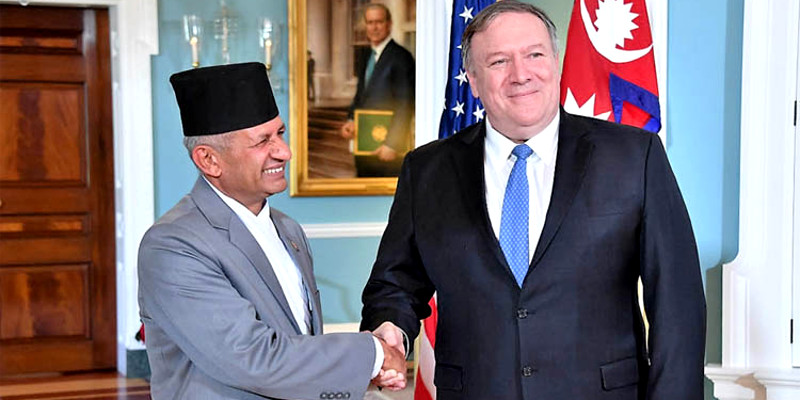The United States secretary of State Mike Pompeo has stated in a congratulatory message to the Prime Minister of Nepal that the Himalayan state has promised to continue protecting the rights of the Tibetan refugees living in the country. Prime Minister KP Sharma Oli has recently completed one year in the office.
In a congratulatory message to the Prime Minister KP Sharma Oli on completion of one year in office, Mike Pompeo said that during his meeting with Foreign Minister Pradeep Gyawali in the United States in the second week of December, he had reassured that Nepal will continue to protect the rights of the Tibetan refugees living in Nepal, according to the report in The Kathmandu Post on Tuesday.
Nepal plays a strategic role in the escape of the Tibetans from Tibet to exile. Since the Chinese invasion of Tibet in 1959, thousands of Tibetans escaped into exile, mostly Nepal playing the transit route to India and other countries around the world. It is also hosting Tibetan refugees whose number ranges between 15,000 to 20,000.
“When I met with Foreign Minister Gyawali recently, in the same room where you [PM Oli] met with then Secretary Condoleezza Rice in 2006, I reaffirmed the US commitment to our relationship and conveyed our wish to foster a genuine partnership,” Pompeo said in the statement according to the report.
“Recognising your own experience as a political prisoner, I welcomed Foreign Minister Gyawali’s reassurance that Nepal would continue to protect the rights of Tibetans in Nepal, particularly the principle of non-refoulement, which ensures that individuals will not be returned to a country where they face serious threats to their life or their religious, cultural and linguistic freedoms,” Pompeo added in his message to Oli.
With increasing Chinese influence in the Himalayan state, Tibetans have been subjected to severe restrictions. While many Tibetans based in the country faced identity crisis due to lack of proper documentation from the authorities, any sort of gatherings or demonstrations, especially those directed against China during important dates such March 10, have been severely restricted.







Leave a Reply